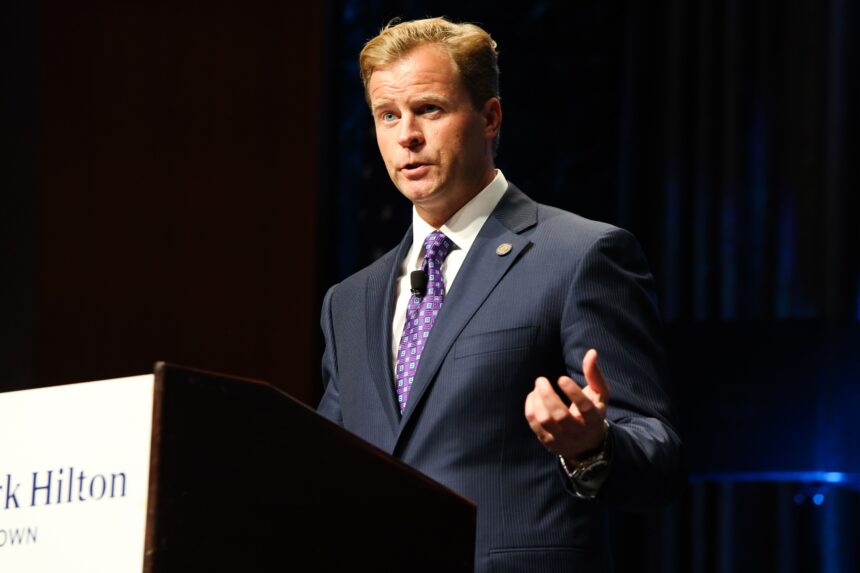At a recent Policy and Regulation event hosted by CoinDesk, Brian Quintenz, a nominee for chair of the Commodity Futures Trading Commission (CFTC), made headlines by publicly sharing messages exchanged with Tyler Winklevoss, the co-founder and CEO of cryptocurrency exchange Gemini. This unusual move has raised eyebrows, especially as Quintenz awaits Senate confirmation.
The situation surrounding Quintenz’s nomination has grown increasingly complex since late July, when the Senate Agriculture Committee postponed a crucial vote to advance his candidacy. The White House intervened, requesting a pause without initially clarifying the rationale. Winklevoss later revealed that he had lobbied the White House to delay the vote, which has significant implications for cryptocurrency regulation in the U.S. The CFTC is poised to take on a primary regulatory role in the crypto space, and the current acting chair, Caroline Pham, plans to leave the agency once Quintenz is confirmed.
In his social media post, Quintenz expressed reluctance to disclose private communications but felt it necessary to clarify misunderstandings about his nomination. He suggested that he may have been misled regarding the motivations behind the hold on his confirmation, stating, “I believe they contacted the president and asked that my confirmation be paused for reasons other than what is reflected in these texts.”
The exchanged messages, dated July 24 and 25, touched on Geminis concerns pertaining to a complaint filed with the CFTC’s Inspector General. Quintenz indicated that it would be preferable for a “fully confirmed chair” to address the issue. The timing is notable; the first postponement of his Senate vote occurred just days before the messages were exchanged.
While the content of the messages is somewhat ambiguous, it raises questions about possible quid pro quo arrangements. Winklevoss appeared to seek reassurance from Quintenz about the agency’s legal actions against Gemini, which Winklevoss characterized as “lawfare.” Quintenz’s cautious stance possibly reflects a nuanced political strategy. Making any promises could necessitate his recusal from discussions involving these issues upon taking office, and premature commitments might serve as fodder during Senate debates on his nomination.
As Quintenz awaits further developments in his path to leadership at the CFTC, the timing of his confirmation votes remains uncertain. The agency stands at a critical juncture, with potential delays in new regulatory mandates looming large. Quintenz’s decision to publicly share his dialogues emphasizes the precariousness of his nomination process and the intense scrutiny surrounding cryptocurrency regulation in the evolving landscape of U.S. policy.







